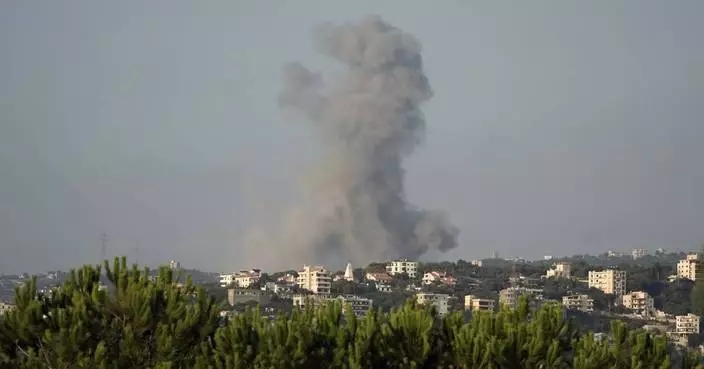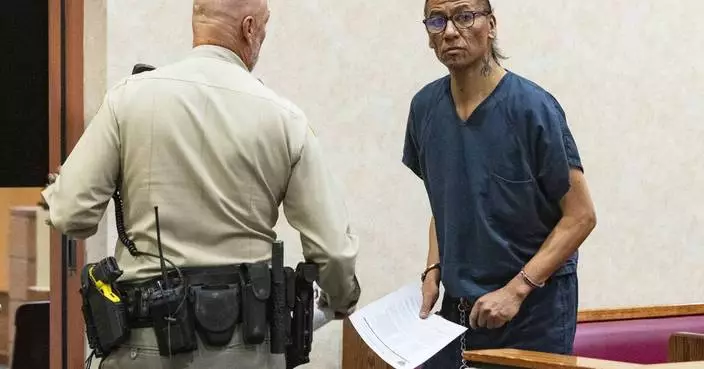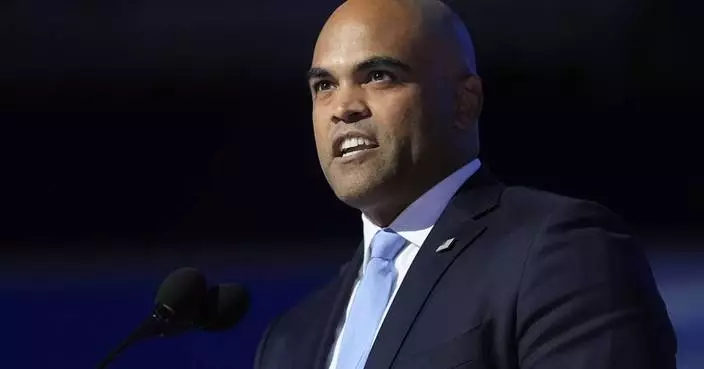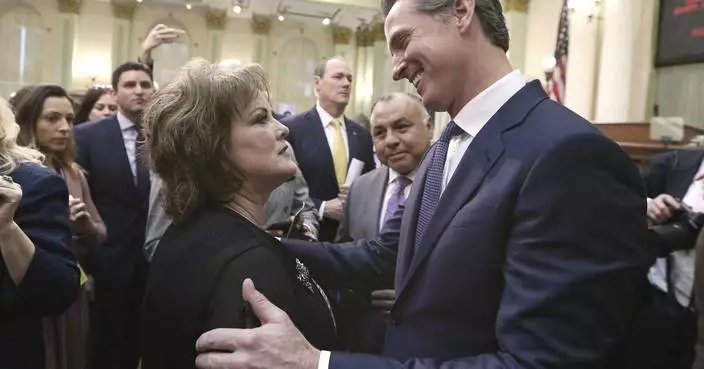LONDON (AP) — Worried about your teen's Instagram use? Faced with growing pressure to do more to stop online harm, the social media platform has rolled out a major new update to protect young people and give parents more control.
With many teens spending almost all of their time online, parents are concerned that social media is exposing them to harmful content like cyberbullying, eating disorders and suicidal thoughts. Prominent profile figures including U.S. Surgeon General Vivek Murthy and Prince Harry have warned about the risks.
Critics say Instagram's changes are a step in the right direction but they still put the onus on parents and children instead of the company to deal with the problem.
Here’s a guide to Instagram’s new teen accounts:
Instagram already prohibits anyone under 13 from signing up.
Now, teen accounts will automatically be set to private. That means they'll have to accept or reject requests from new followers. Other users won't be able to see a teen user's posts and videos, or tag the account.
Teens will also face messaging restrictions. They can only receive direct messages from people they're following or who follow them. But they can still send messages to other accounts.
And they'll be subject to the strictest content settings, and won't be shown content involving sensitive topics like fighting videos and posts about cosmetic procedures. Instagram's anti-bullying feature will be set to the highest level to screen out offensive words and phrases in comments and direct message requests.
To cut down their screen time, teens will get a notification to stop using the app after it's been open for more than an hour — which they can ignore.
Sleep mode will kick in from 10 p.m. to 7 a.m., which mutes notifications and sends auto-replies to direct messages at a time when they're supposed to be sleeping. However, they can still scroll through Instagram and even respond to messages if they want to.
These limits will be turned on automatically for all teens, but 16 and 17-year-olds will have the authority to turn them off. Kids under 16 will need permission to do so and parents can make changes and approve or deny any requests in the family center.
Teens might lie about their age, but it’s getting harder to fool the platform. Instagram has previously started requiring users to verify their ages — by uploading an ID or doing a video selfie — if they try to change their birthdates to show they’re over 18.
Now, Instagram says it will start testing artificial intelligence technology early next year to detect if a user is a teen even if the account lists an adult birthday.
Of course, teens don’t have to agree to be supervised in the first place. Instagram says they and their parents both have to opt in. And either side can revoke supervision at any time.
What if the parent isn't on Instagram? If you want to use the teen controls, you’ll need an account even if you don’t want it. A spokeswoman said it’s important for parents to be familiar with the platform so they can effectively supervise their teens.
If you don't think the limits on your teen's account are strict enough, you can add supervisory controls.
This feature allows parents to see who their teen has traded messages with within the past seven days, but not what's in those messages.
Not happy that your teen can ignore reminders to stop using the app? There are controls to let parents limit the amount of time their teen spends on Instagram each day. Once the limit is hit, they are cut off. You can also block your teen from using Instagram during specific times of the day, and monitor the topics of content that they're seeing.
First, you’ll need your teen to set up family supervision on his or her account. On the mobile app, go to settings and scroll down to the family center to activate this feature.
Next, the teen account will have to invite a parent. It will be in the form of a link the teen can send by text message to the parent.
After accepting the invite, the teen user has 48 hours to review and confirm the parent's response.
Anyone under 18 who now signs up for Instagram in the U.S., U.K., Canada and Australia will be automatically enrolled into a restricted teen account. Existing accounts will be transferred by mid-November. Teens in the European Union’s 27 countries will be migrated later this year.
The rest of the world will get teen accounts in January and they will roll out to other Meta services like Facebook next year.
Is there a tech challenge you need help figuring out? Write to us at onetechtip@ap.org with your questions.

File - The Instagram logo is seen on a cell phone in Boston, Oct. 14, 2022. (AP Photo/Michael Dwyer, File)

One Tech Tip: Using Instagram's new teen account settings to supervise young users

FILE - Students use their cellphones as they leave for the day the Ramon C. Cortines School of Visual and Performing Arts High School in downtown Los Angeles, Aug. 13, 2024. (AP Photo/Damian Dovarganes, File)

One Tech Tip: Using Instagram's new teen account settings to supervise young users
NEW YORK (AP) — Israeli Prime Minister Benjamin Netanyahu on Thursday vowed to carry out “full force” strikes against Hezbollah until it ceases firing rockets across the border, dimming hopes for a cease-fire proposal put forth by U.S. and European officials.
Israel carried out a new strike in the Lebanese capital, which killed a senior Hezbollah commander, and the militant group launched dozens of rockets into Israel. Tens of thousands of Israeli and Lebanese people living near their countries' border have been displaced by the fighting.
Netanyahu spoke as he landed in New York to attend the annual U.N. General Assembly meeting, where U.S. and European officials were putting heavy pressure on both sides of the conflict to accept a proposed 21-day halt in the fighting to give time for diplomacy and avert all-out war.
Nearly 700 people have been killed in Lebanon this week as Israel dramatically escalated strikes, saying it is targeting Hezbollah’s military capacities. Israeli leaders say they are determined to stop the group's cross-border attacks, which began after Hamas' Oct. 7 attack that ignited the war in Gaza.
Israel’s “policy is clear," Netanyahu said. "We are continuing to strike Hezbollah with full force. And we will not stop until we reach all our goals, chief among them the return of the residents of the north securely to their homes.”
Just before his comments, the Israeli military said it killed a Hezbollah drone commander, Mohammed Hussein Surour, in an airstrike in the suburbs of Beirut. Hezbollah later confirmed Surour's death.
The Health Ministry said two people were killed and 15 wounded in the strike. Associated Press photos of the scene showed a gutted apartment in a residential building in Dahiyeh, the mainly Shiite suburb where Hezbollah has a strong presence.
Until recently, Israel had rarely targeted sites in Beirut during the low-level conflict with Hezbollah that has been ongoing since October. However, in the past week, Israel has struck Beirut’s southern suburbs several times.
Over the past week, Israel has carried out several strikes in Beirut targeting senior Hezbollah commanders. One strike in eastern Lebanon on Thursday killed 20 people, most of them Syrian migrants, according to Lebanese health officials.
Israel hit 75 sites early Thursday across southern and eastern Lebanon and launched a new wave of strikes in the evening, the military said. Throughout the day, Hezbollah fired some 175 projectiles into Israel, the Israeli military said. Most were intercepted or fell in open areas, sparking some wildfires, though one rocket hit a street in a town near the northern city of Safed.
Israel has talked of a possible ground invasion into Lebanon to drive Hezbollah -- an Iranian-backed Shiite group that is the strongest armed force in Lebanon -- away from the border. It has moved thousands of troops to the north in preparation. Some 100,000 Lebanese have fled their homes in the past week, streaming into Beirut and points further north.
Israeli military vehicles transported tanks and armored vehicles toward the country’s northern border with Lebanon a day after commanders issued a call-up of reservists. Several tanks arrived in Kiryat Shmona, a hard-hit town just several miles from the border.
On another front, Israel’s military on Friday said it intercepted a missile fired from Yemen that set off air raid sirens across the country’s center. Sirens rang out across Israel’s populous central area, including the seaside metropolis of Tel Aviv. Another missile from Yemen landed in central Israel about two weeks ago.
The escalation has raised fears of a repeat – or worse – of the 2006 war between Israel and Hezbollah that wreaked destruction across southern Lebanon and other parts of the country and saw heavy Hezbollah rocket fire on Israeli cities.
“Another full-scale war could be devastating for both Israel and Lebanon,” U.S. Defense Secretary Lloyd Austin said after talks with his British and Australian counterparts in London.
U.S. Secretary of State Antony Blinken was at the U.N. meeting with Israeli officials over the truce proposal. Speaking in an interview with MSNBC, he said major powers, the Europeans and Arab nations were united, “everyone speaking with one clear voice about the need to get that cease-fire in the north.”
“I can’t speak for him,” Blinken said of Netanyahu.
Hezbollah has not yet responded to the proposal. Lebanon’s caretaker Prime Minister Najib Mikati welcomed it, but his government has no sway over the group.
Netanyahu’s office downplayed the initiative, saying in a statement that it was only a proposal.
One of Netanyahu’s far-right governing partners threatened on Thursday to suspend cooperation with his government if it signs onto a temporary cease-fire with Hezbollah – and to quit completely if a permanent deal is reached. It was the latest sign of displeasure from Netanyahu’s allies toward international cease-fire efforts.
“If a temporary cease-fire becomes permanent, we will resign from the government,” said National Security Minister Itamar Ben-Gvir, head of the Jewish Power party.
If Ben-Gvir leaves the coalition, Netanyahu would lose his parliamentary majority and could see his government come toppling down, though opposition leaders have said they would offer support for a cease-fire deal.
Hezbollah has insisted it would halt its strikes only if there is a cease-fire in Gaza, where Israel has battled Hamas for nearly a year. That appears out of reach despite months of negotiations led by the United States, Egypt and Qatar.
One day after Hamas’ Oct 7 attack on southern Israel that triggered the war in Gaza, Hezbollah began firing rockets into northern Israel, bringing Israeli counterfire and a cycle of reprisals that has gone on near daily since. Hezbollah says its barrages are a show of support for Palestinians and that it is targeting Israeli military facilities, though rockets have also hit civilian areas.
Before this week, the cross-border exchanges had killed about 600 people in Lebanon, mostly militants but including more than 100 civilians, and about four dozen people in Israel, roughly half of them soldiers and the rest civilians. The fighting also forced tens of thousands to flee homes on both sides of the border.
Israel says its escalated strikes across Lebanon the past week are targeting Hezbollah rocket launchers and other military infrastructure. Since Monday, strikes have killed more than 690 people in Lebanon, around a quarter of them women and children, according to local health authorities.
The campaign opened with what is widely believed to be an Israeli attack on Sept. 18 and 19 detonating thousands of pagers and walkie-talkies used by Hezbollah, killing at least 39 people and maiming thousands more, including civilians.
Hezbollah in turn has fired hundreds of rockets into Israel. Several people in Israel have been wounded. On Wednesday, the group fired on Tel Aviv for the first time with a longer-range missile that was intercepted.
Early Thursday, an Israeli airstrike hit a building housing Syrian workers and their families near the ancient city of Baalbek in Lebanon’s eastern Bekaa Valley. The Lebanese Health Ministry said 19 Syrians and a Lebanese were killed, one of the deadliest single strikes in Israel’s intensified air campaign.
Hussein Salloum, a local official in Younine, said most of the dead were women and children. The state news agency had initially reported that 23 people were dead.
Lebanon, with a population of around 6 million, hosts nearly 780,000 registered Syrian refugees and hundreds of thousands who are unregistered — the world’s highest refugee population per capita.
Mroue reported from Beirut, Lidman from Tel Aviv. Associated Press journalist Sam McNeil contributed to this report from Kiryat Shmona, Israel.
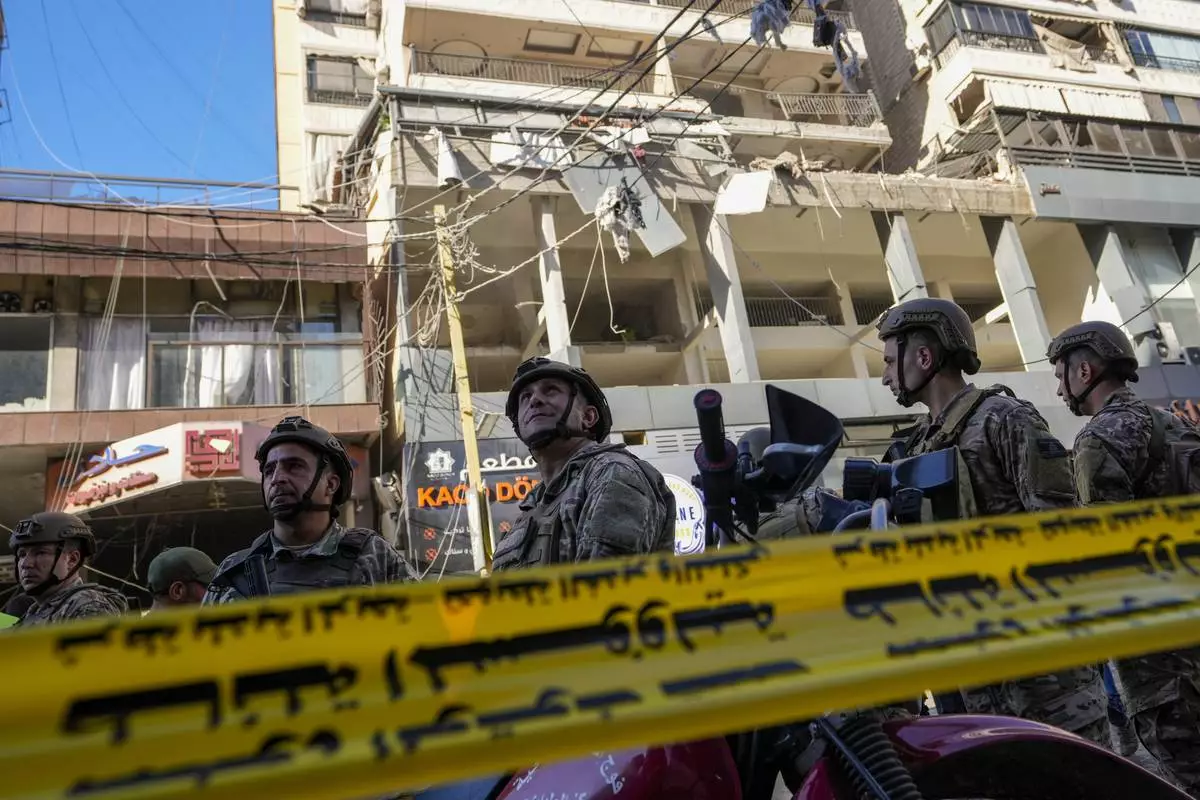
Lebanese soldiers cordon off the area at the site of an Israeli airstrike in Beirut's southern suburbs, Thursday, Sept. 26, 2024. (AP Photo/Hassan Ammar)
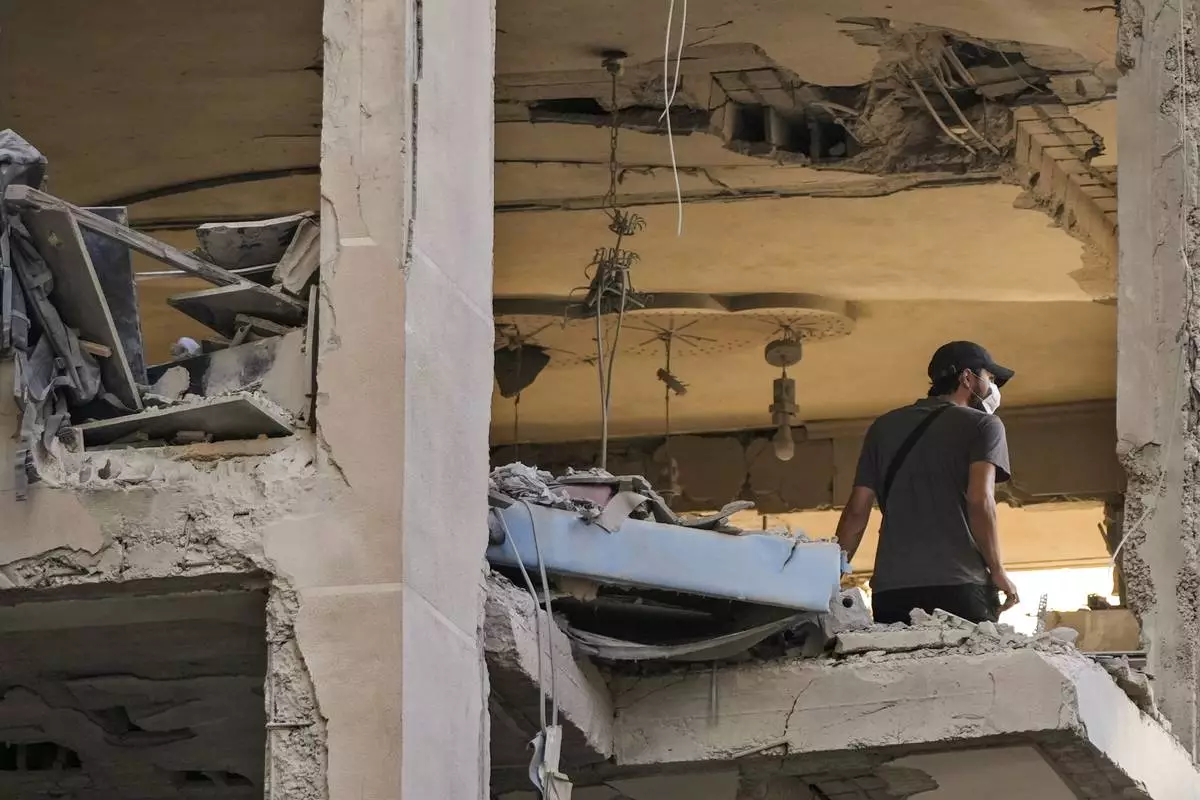
A resident checks an apartment that was hit by an Israeli airstrike in Beirut's southern suburbs, Thursday, Sept. 26, 2024. (AP Photo/Hassan Ammar)
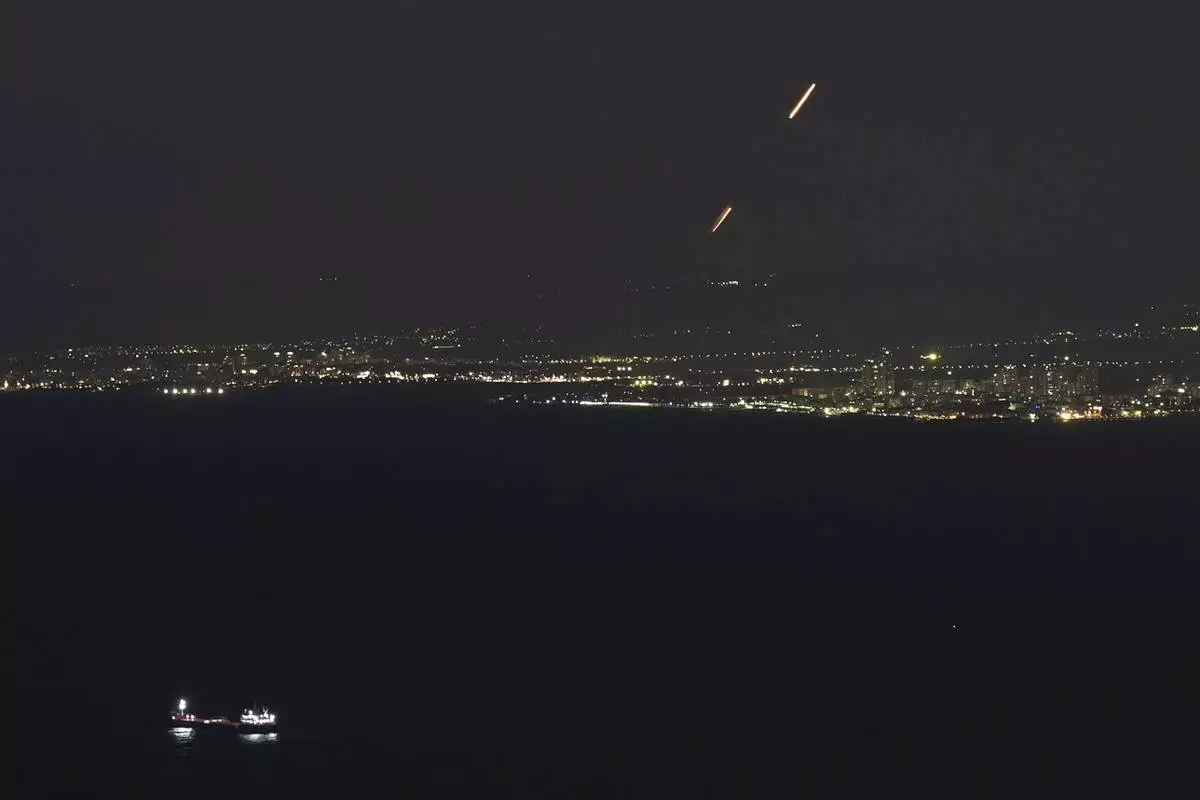
Israeli Iron Dome air defense system fires to intercept rockets that were launched from Lebanon, as seen from Haifa, northern Israel, Thursday, Sept. 26, 2024. (AP Photo/Baz Ratner)
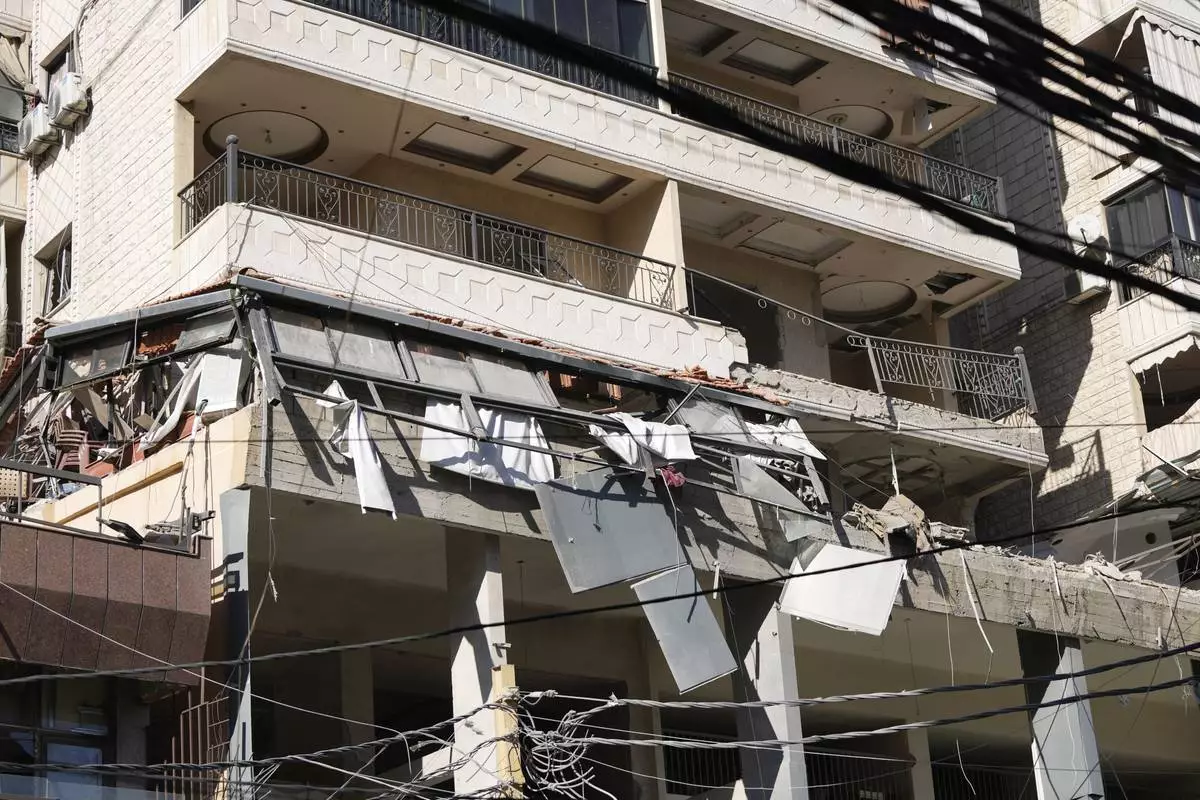
A damaged building at the site of an Israeli airstrike in Beirut's southern suburbs, Thursday, Sept. 26, 2024. (AP Photo/Hassan Ammar)
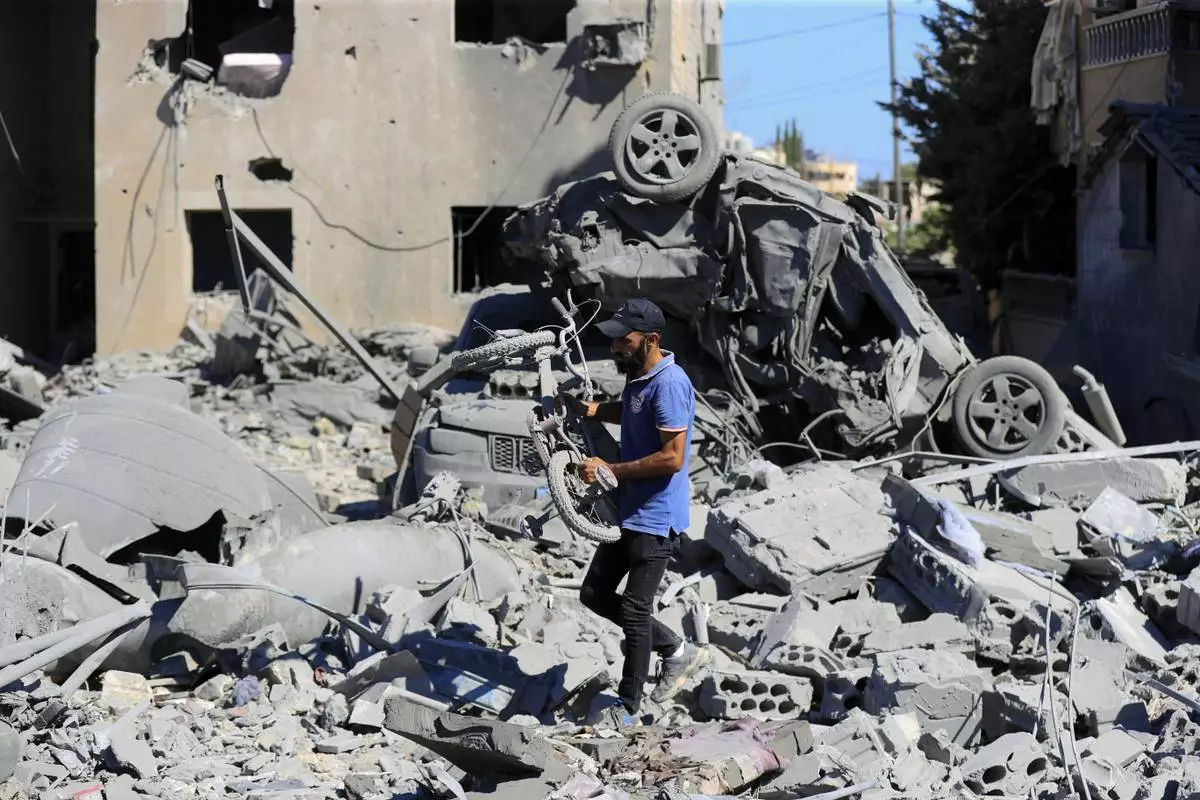
A man carries a damaged bicycle at the site of an Israeli airstrike in Saksakieh, south Lebanon, Thursday, Sept. 26, 2024. (AP Photo/Mohammed Zaatari)
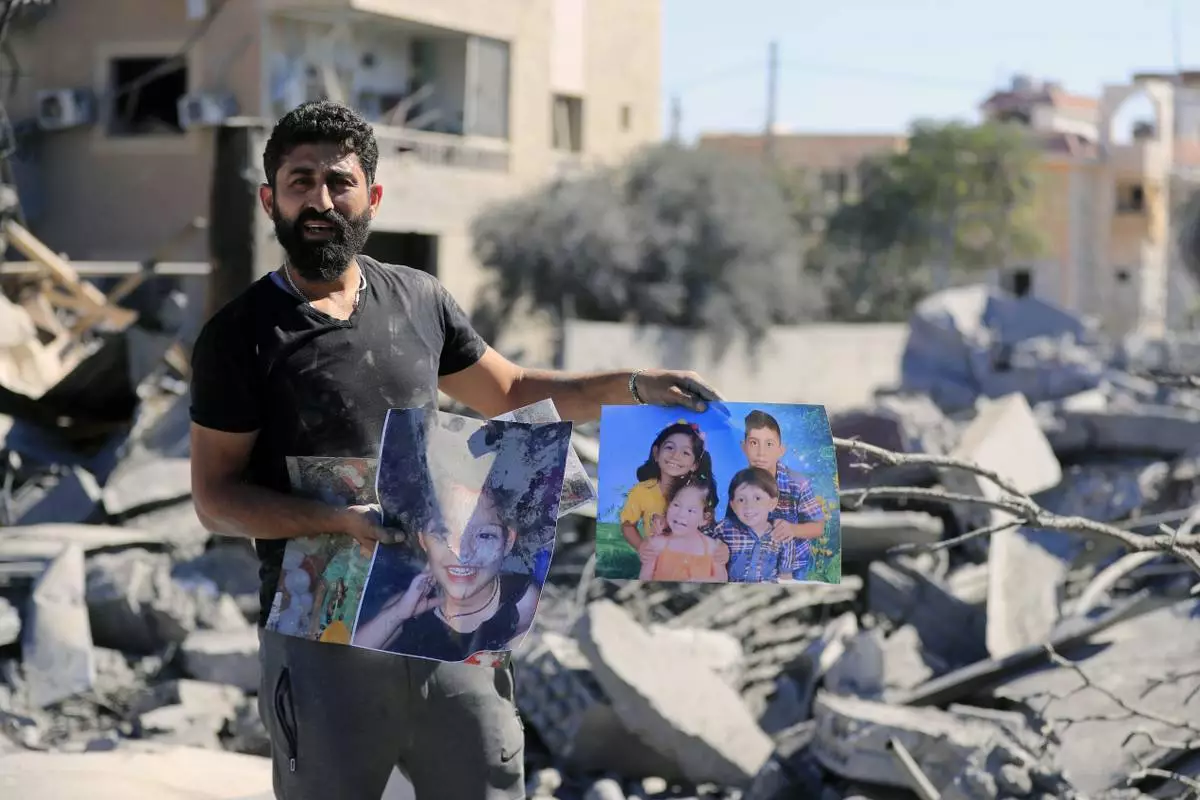
A man carries pictures of his relatives standing at the site of an Israeli airstrike in Saksakieh, south Lebanon, Thursday, Sept. 26, 2024. (AP Photo/Mohammed Zaatari)
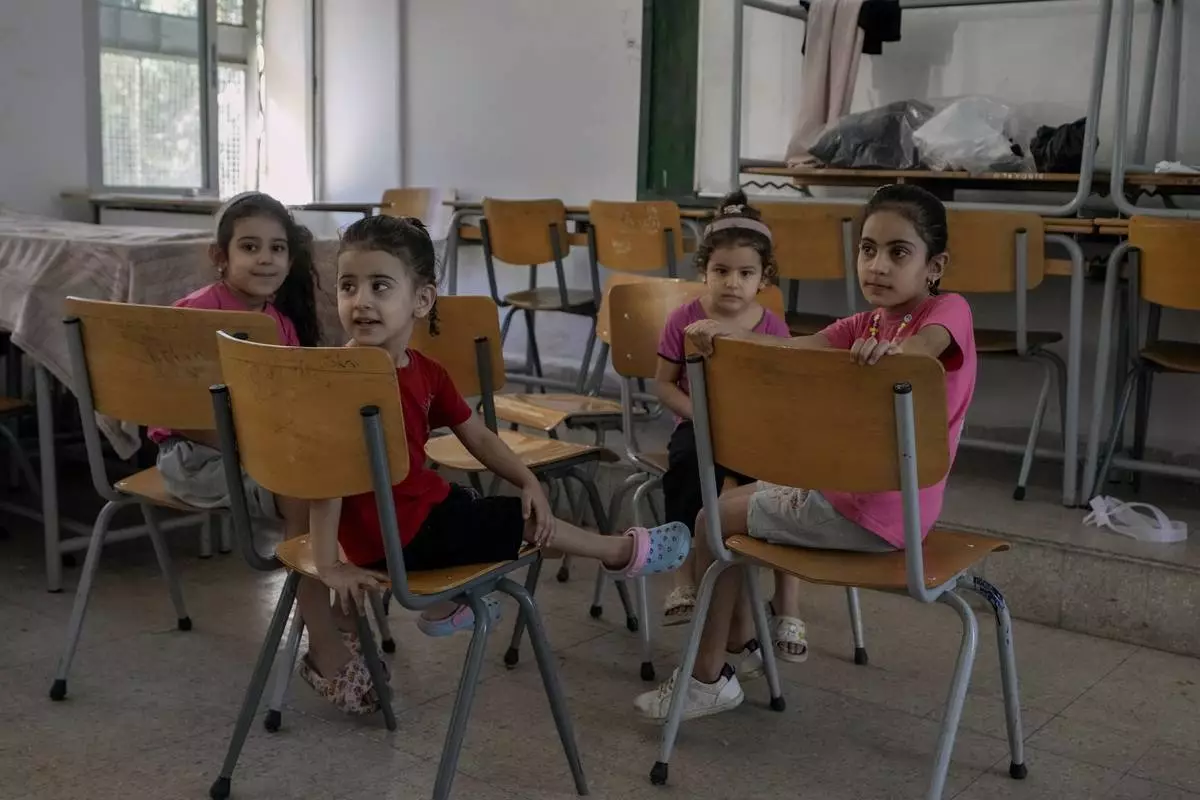
Displaced children sit in a classroom in Beirut, after fleeing the Israeli airstrikes in the south with their families, Thursday, Sept. 26, 2024. (AP Photo/Bilal Hussein)
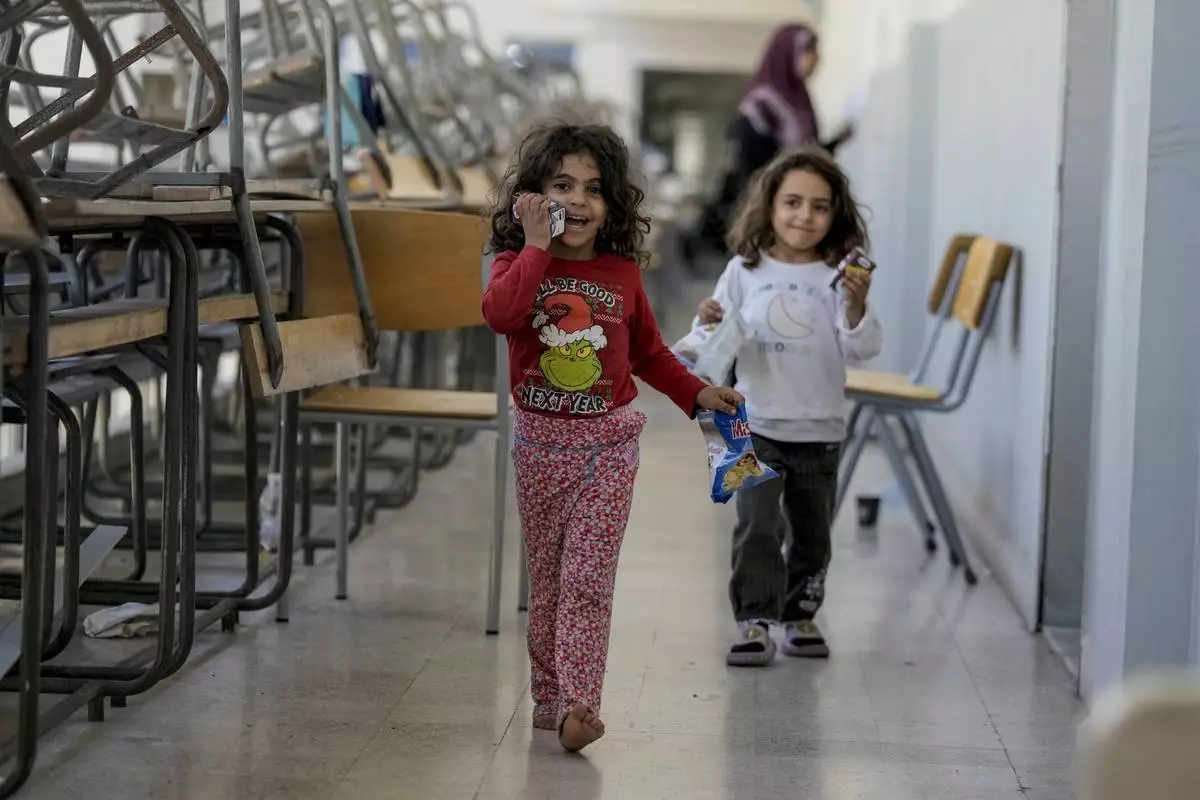
Displaced children play in a classroom at a school, in Beirut, after fleeing the Israeli airstrikes in the south with their families, Thursday, Sept. 26, 2024. (AP Photo/Bilal Hussein)
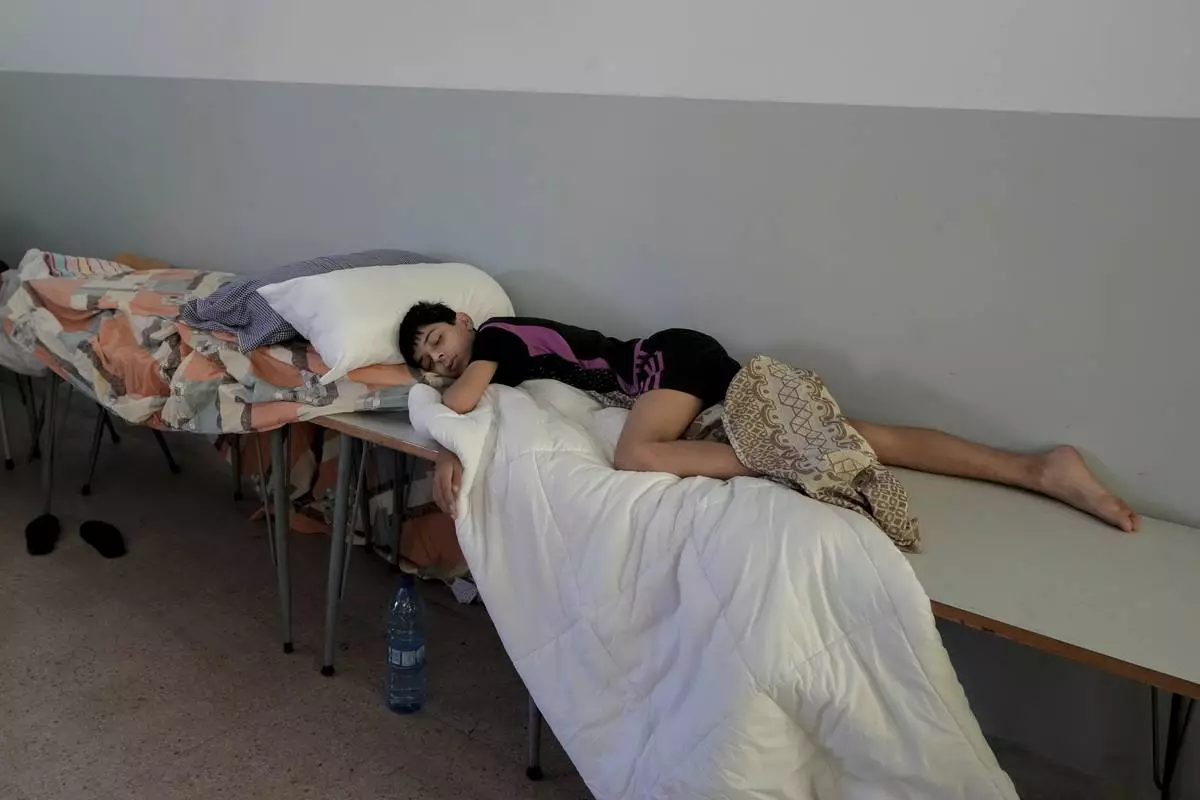
A displaced boy sleeps in a classroom in Beirut, after fleeing the Israeli airstrikes in the south with his family, Thursday, Sept. 26, 2024. (AP Photo/Bilal Hussein)
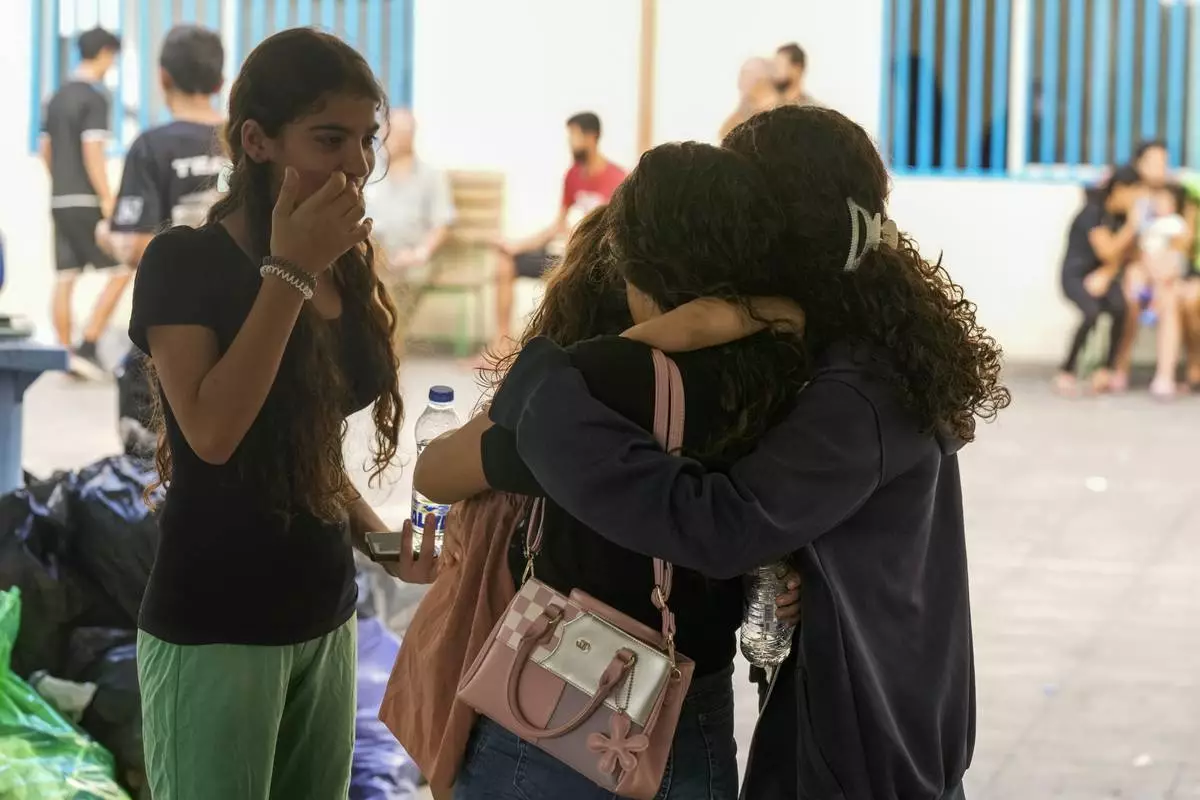
Displaced youth hug as they take shelter at a school in Beirut, after fleeing the Israeli airstrikes in the south with their families, Thursday, Sept. 26, 2024. (AP Photo/Bilal Hussein)
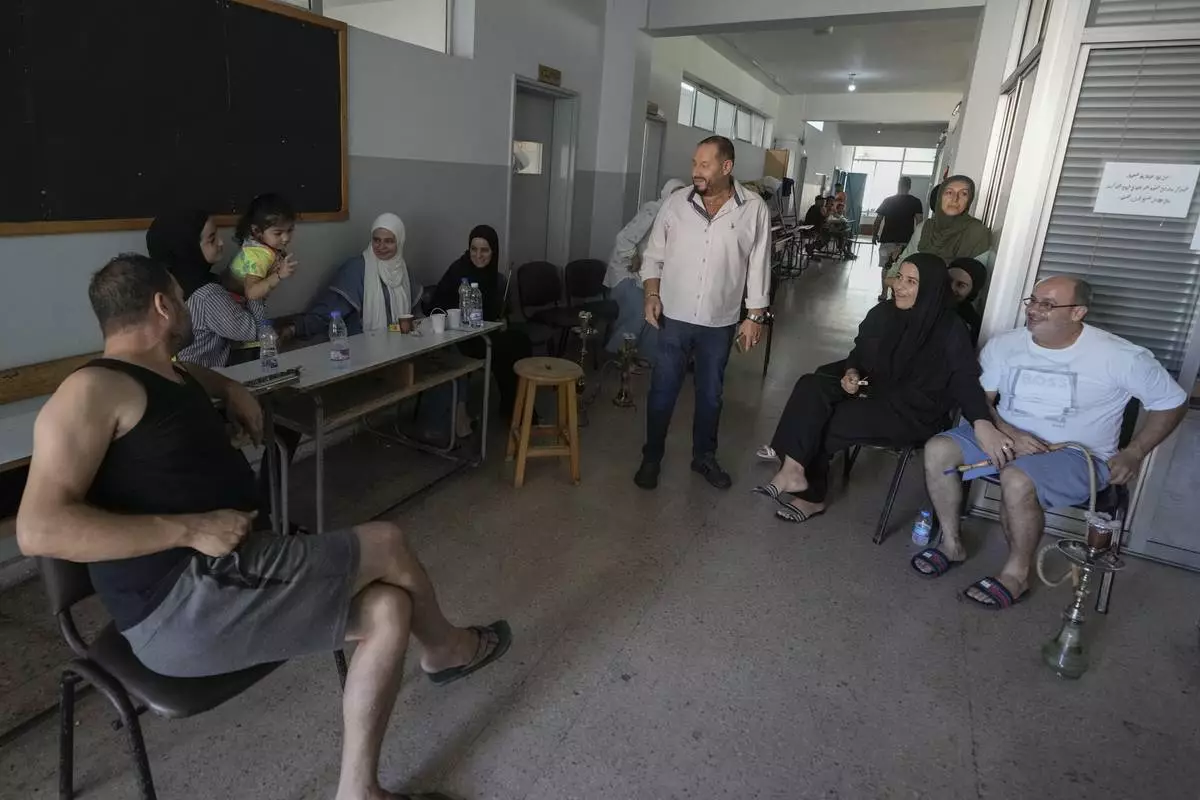
Displaced people gather in the hallway of a school in Beirut, after fleeing the Israeli airstrikes in the south, Thursday, Sept. 26, 2024. (AP Photo/Bilal Hussein)
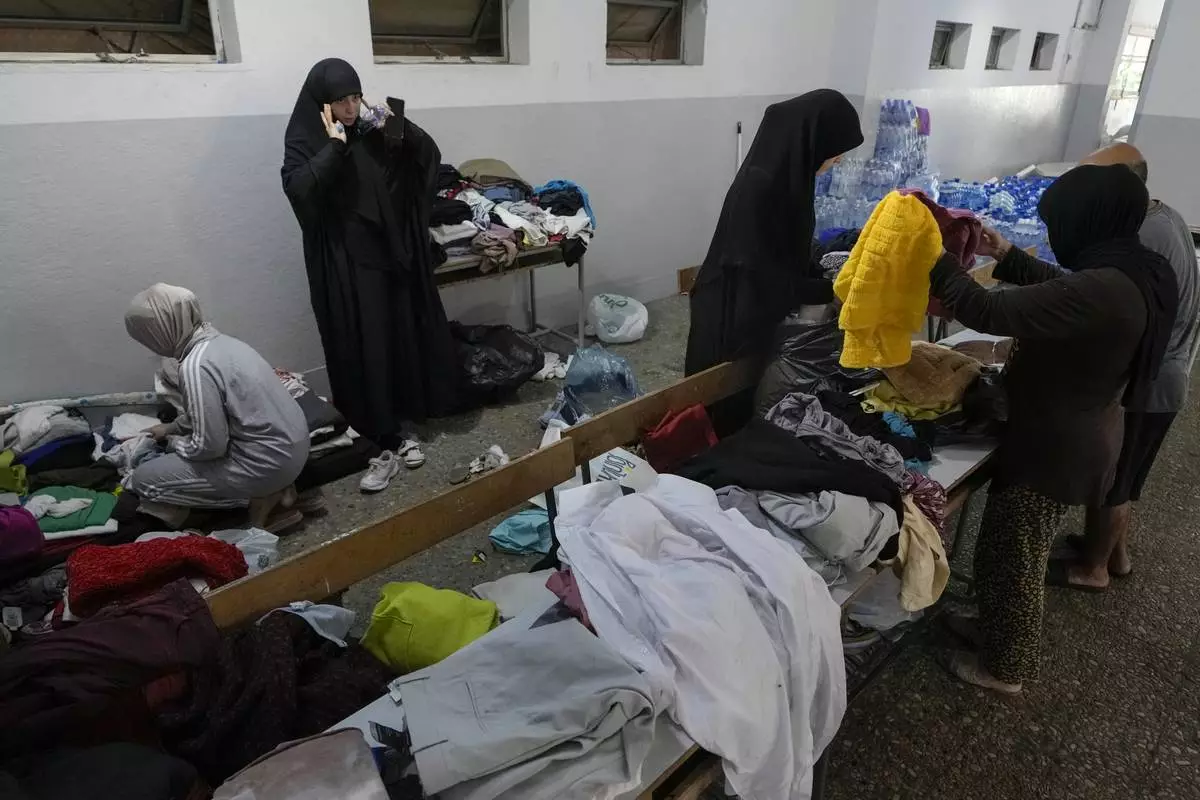
Volunteers distribute clothes to displayed women at a school in Beirut, Thursday, Sept. 26, 2024. (AP Photo/Bilal Hussein)
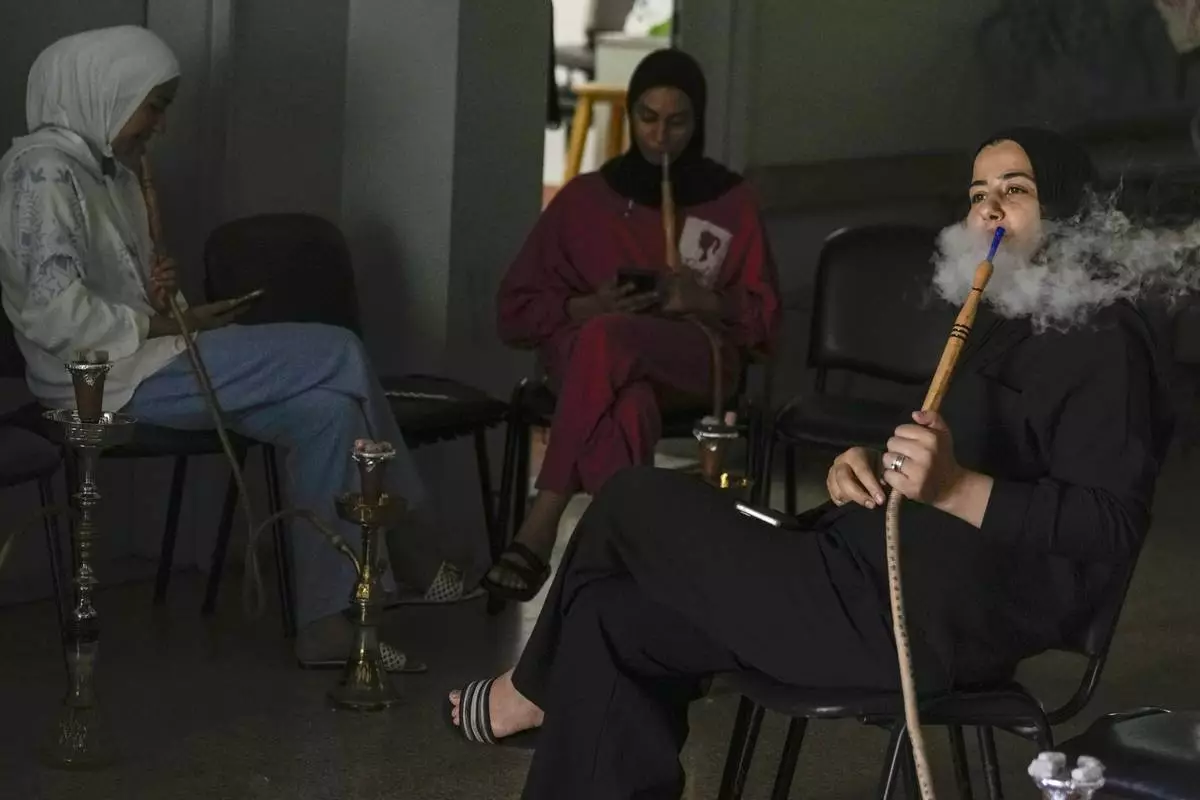
Displaced women smoke waterpipes as they sit in a school in Beirut, Thursday, Sept. 26, 2024. (AP Photo/Bilal Hussein)
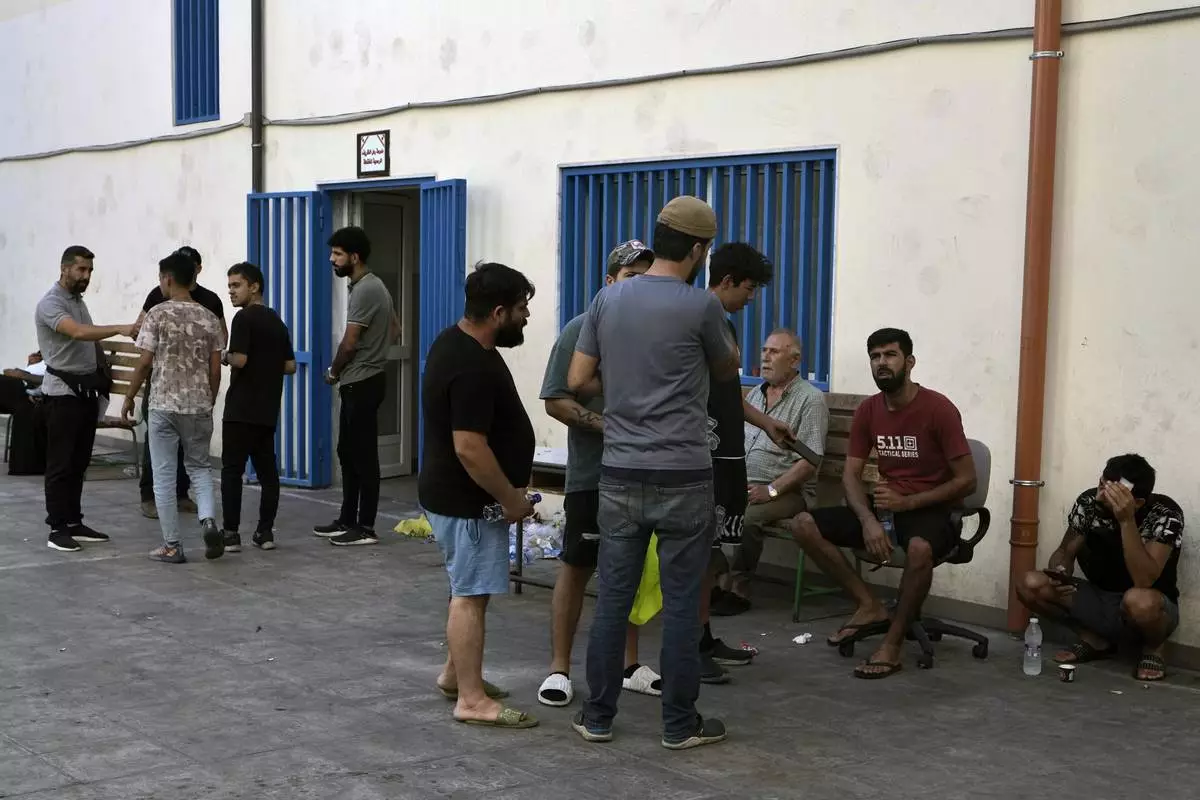
Displaced people sit in a school yard in Beirut, after fleeing the Israeli airstrikes in the south, Thursday, Sept. 26, 2024. (AP Photo/Bilal Hussein)
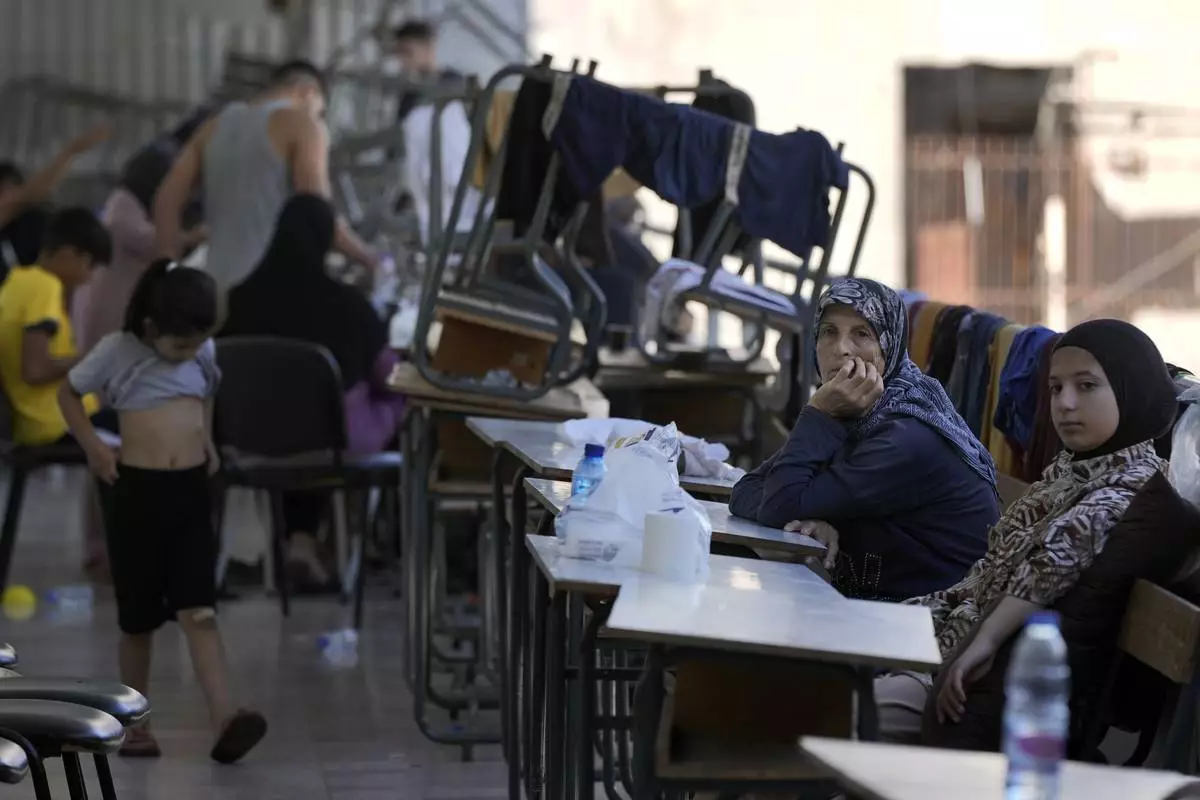
Displaced women and children sit in a classroom in Beirut, after fleeing the Israeli airstrikes in the south, Thursday, Sept. 26, 2024. (AP Photo/Bilal Hussein)
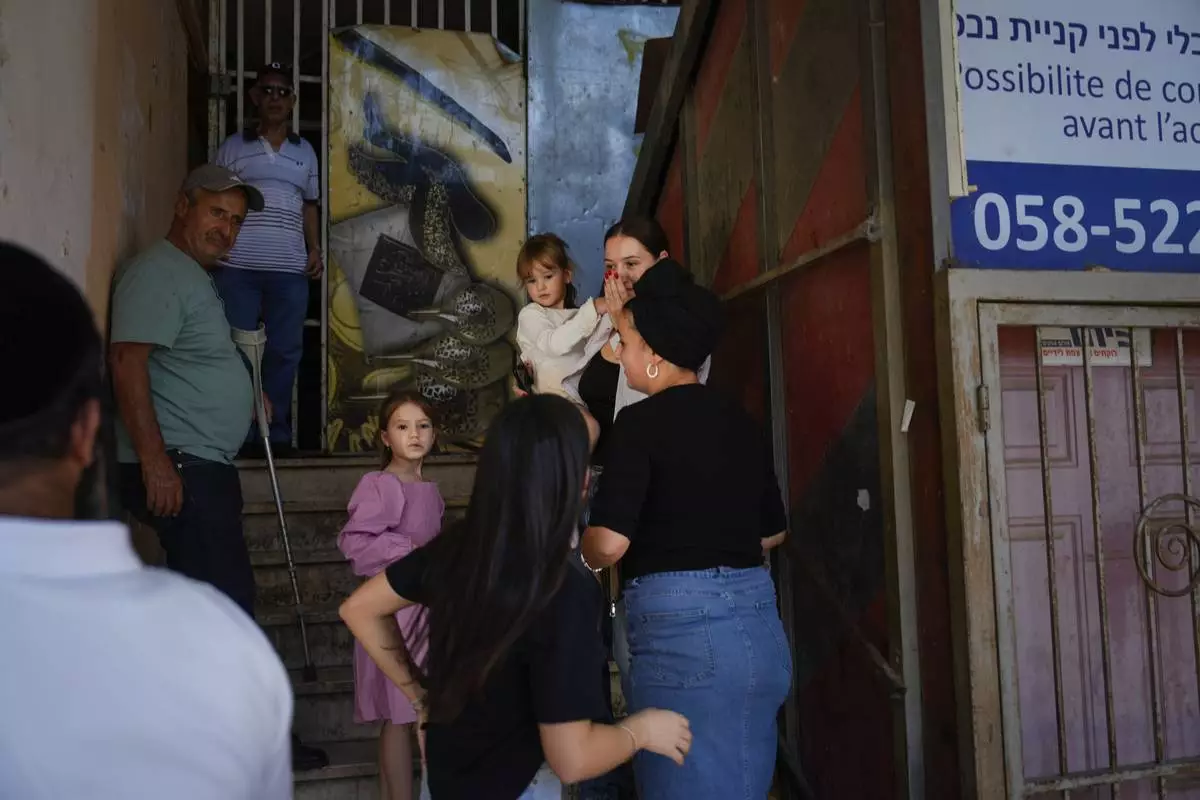
People take cover as a siren sounds a warning of incoming rockets fired from Lebanon, in Safed, northern Israel, Thursday, Sept. 26, 2024. (AP Photo/Ariel Schalit)
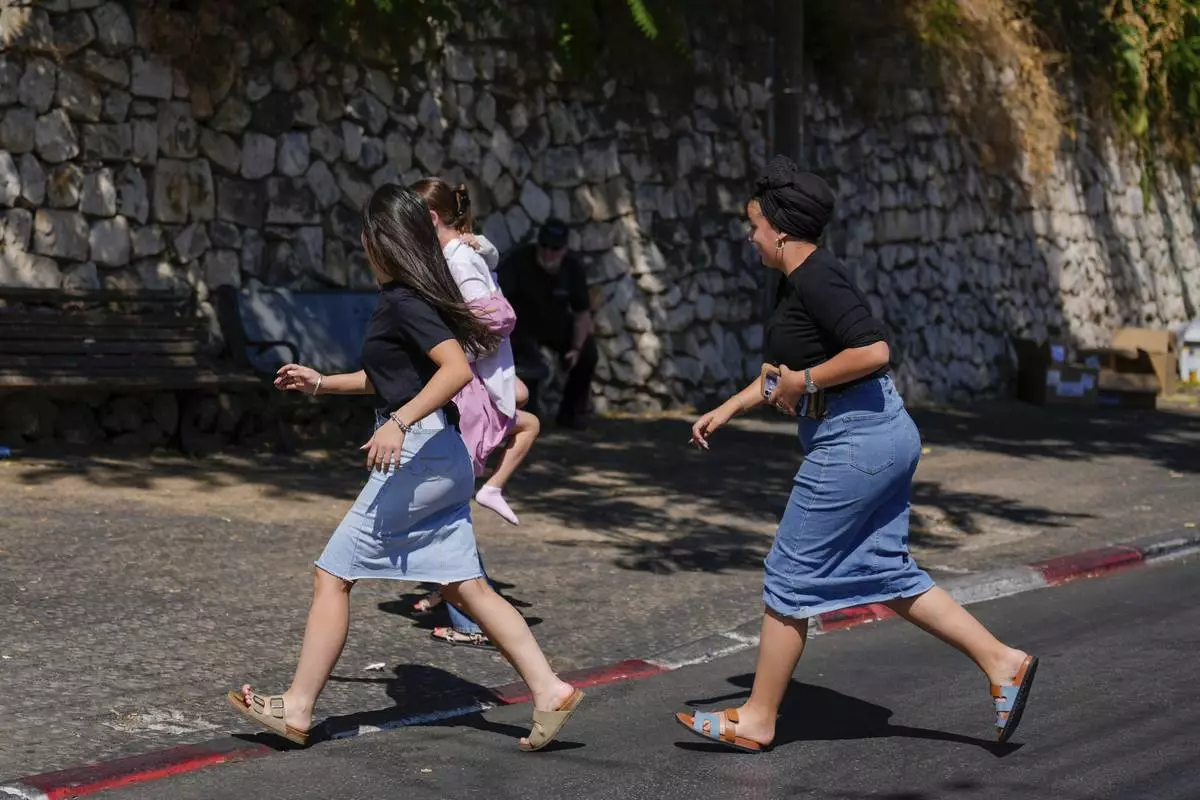
People run to take cover as a siren sounds a warning of incoming rockets fired from Lebanon, in Safed, northern Israel, Thursday, Sept. 26, 2024. (AP Photo/Ariel Schalit)
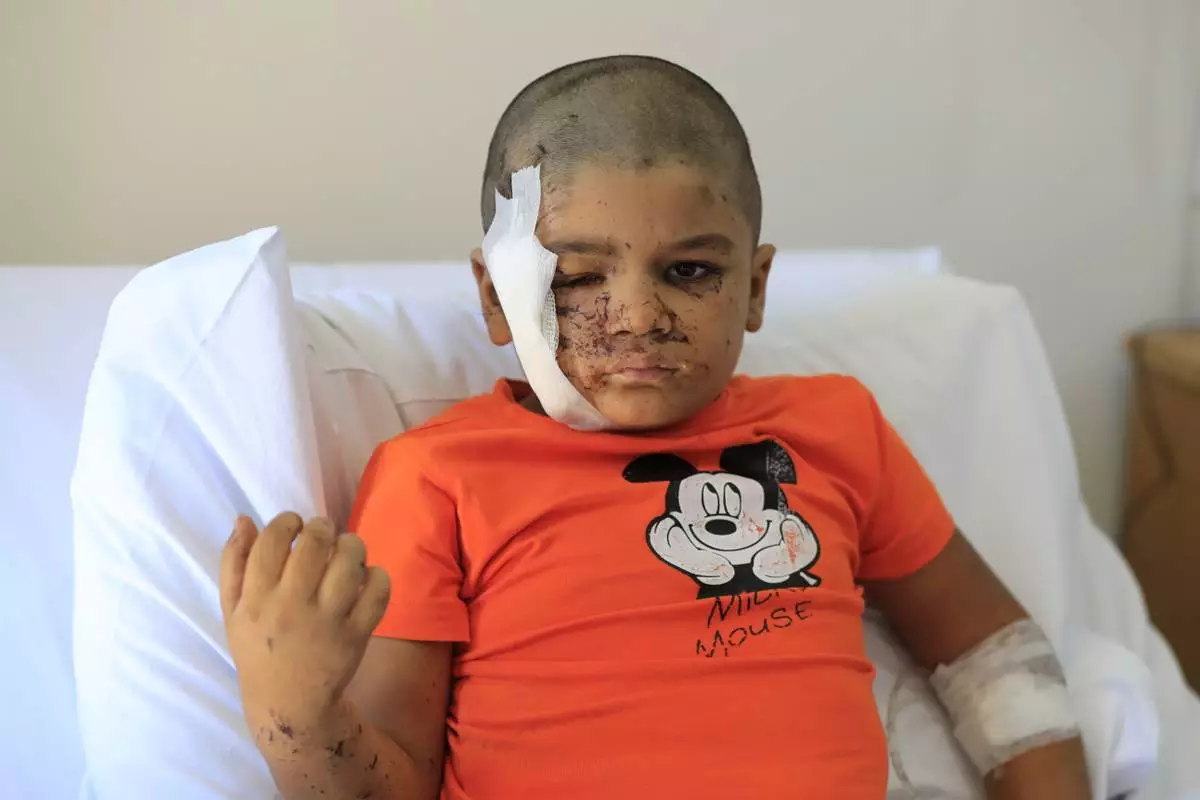
Ali Abdel Rahman Zorout, 5, who was wounded in an Israeli airstrike, poses for a picture at the Alaaeddine Hospital in Sarafand, south Lebanon, Thursday, Sept. 26, 2024. (AP Photo/Mohammed Zaatari)
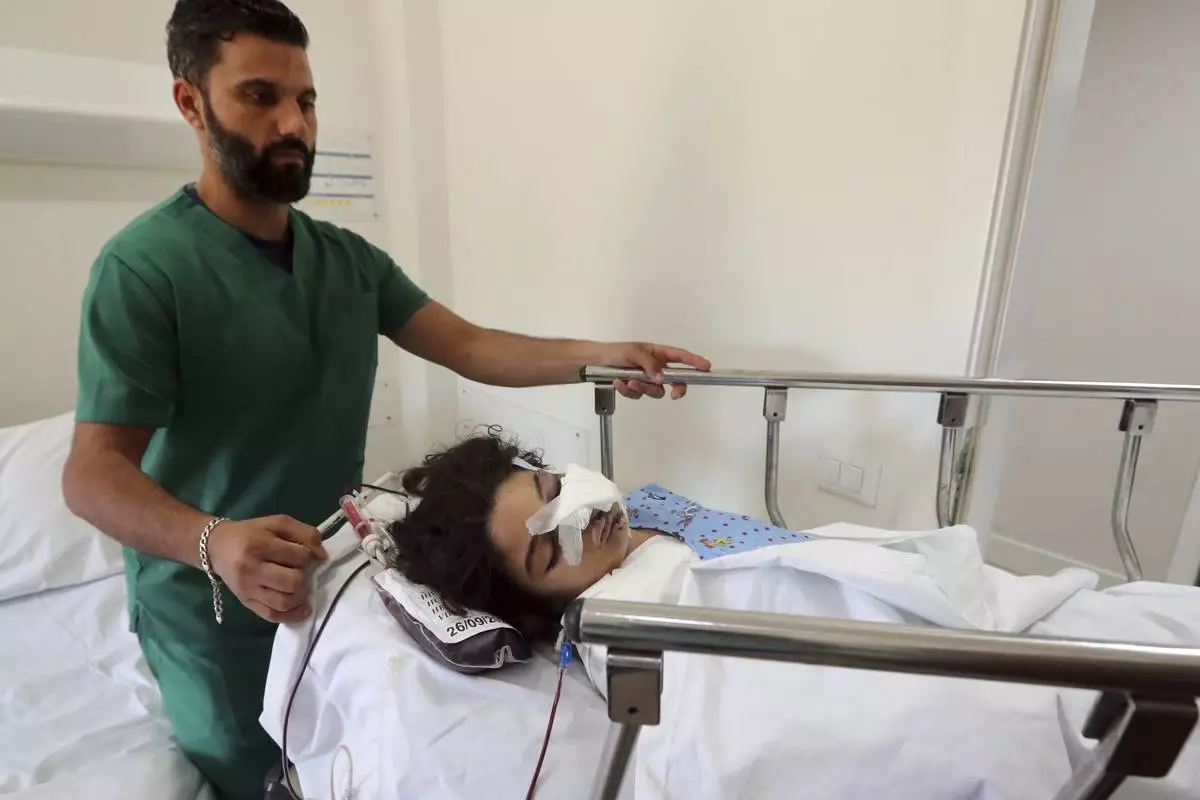
Fatima Abdel Rahman Zorout, 7, who was wounded in an Israeli airstrike, is wheeled on a gurney at the Alaaeddine Hospital in Sarafand, south Lebanon, Thursday, Sept. 26, 2024. (AP Photo/Mohammed Zaatari)
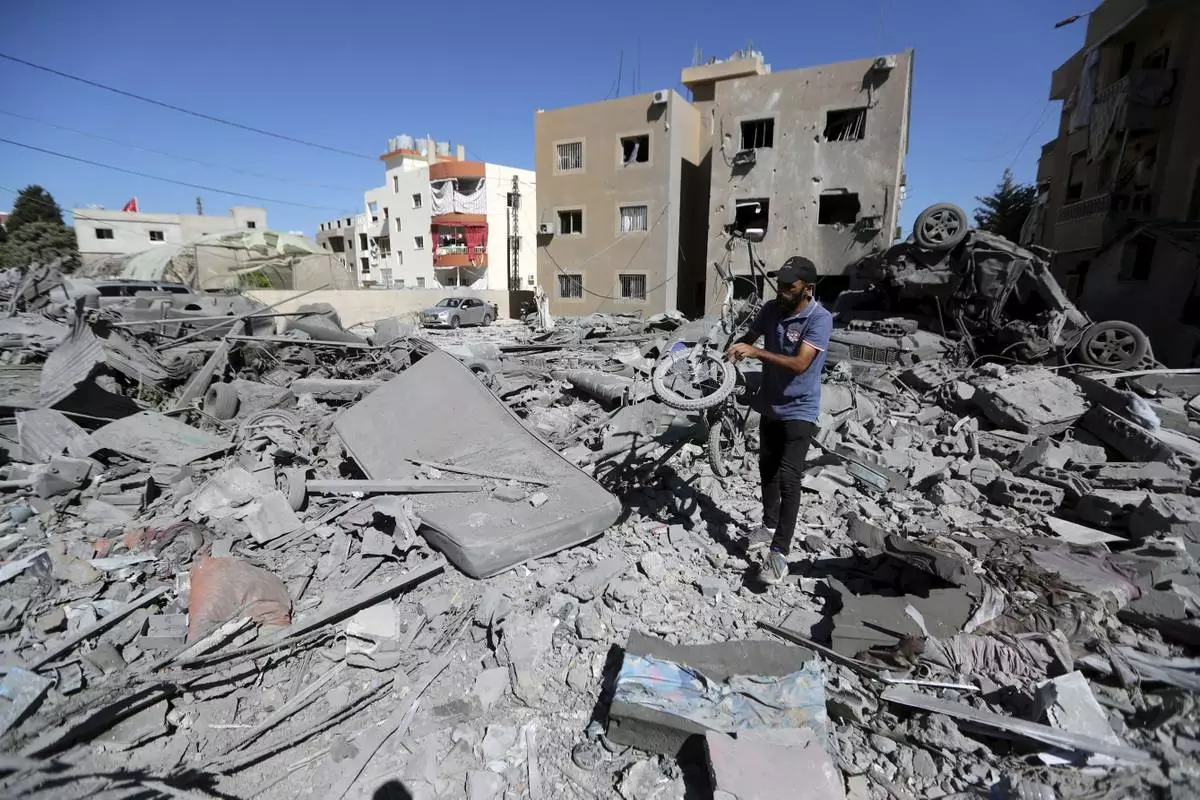
A man carries a damaged bicycle at the site of an Israeli airstrike in Saksakieh, south Lebanon, Thursday, Sept. 26, 2024. (AP Photo/Mohammed Zaatari)
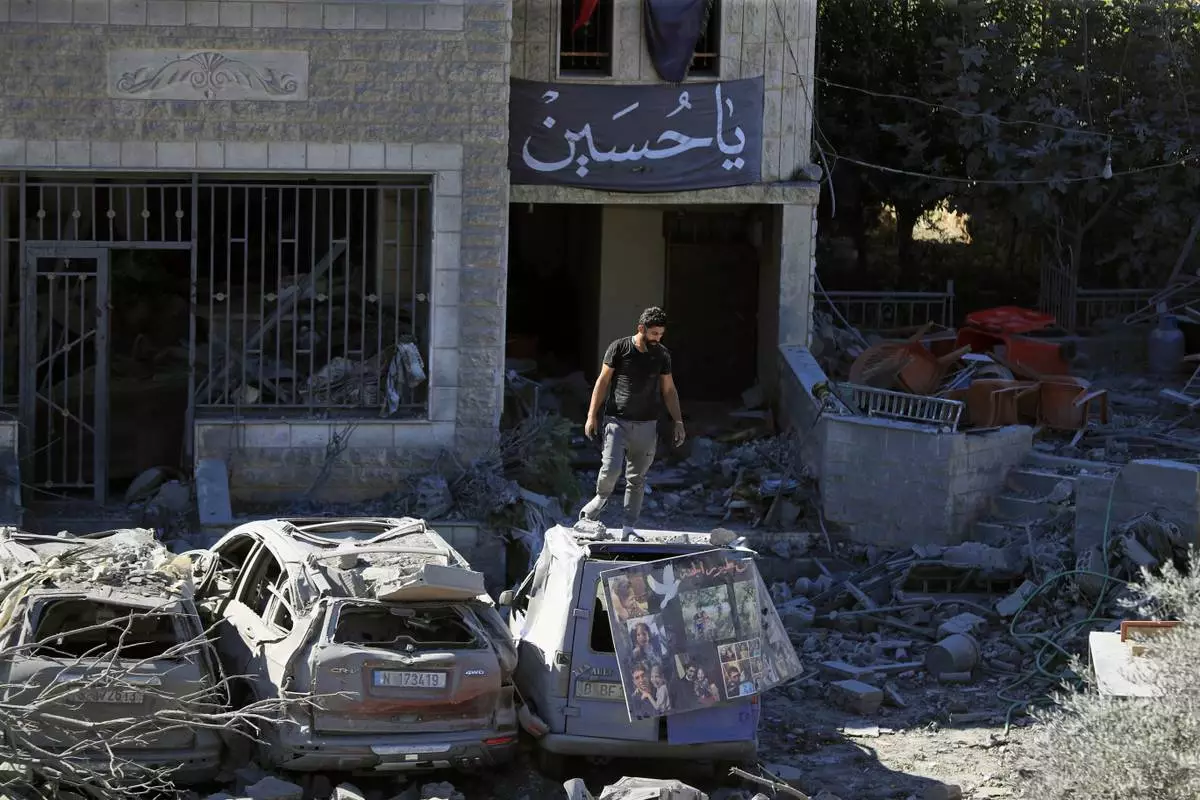
A man stands on top of a damaged car at the site of an Israeli airstrike in Saksakieh, south Lebanon, Thursday, Sept. 26, 2024. (AP Photo/Mohammed Zaatari)
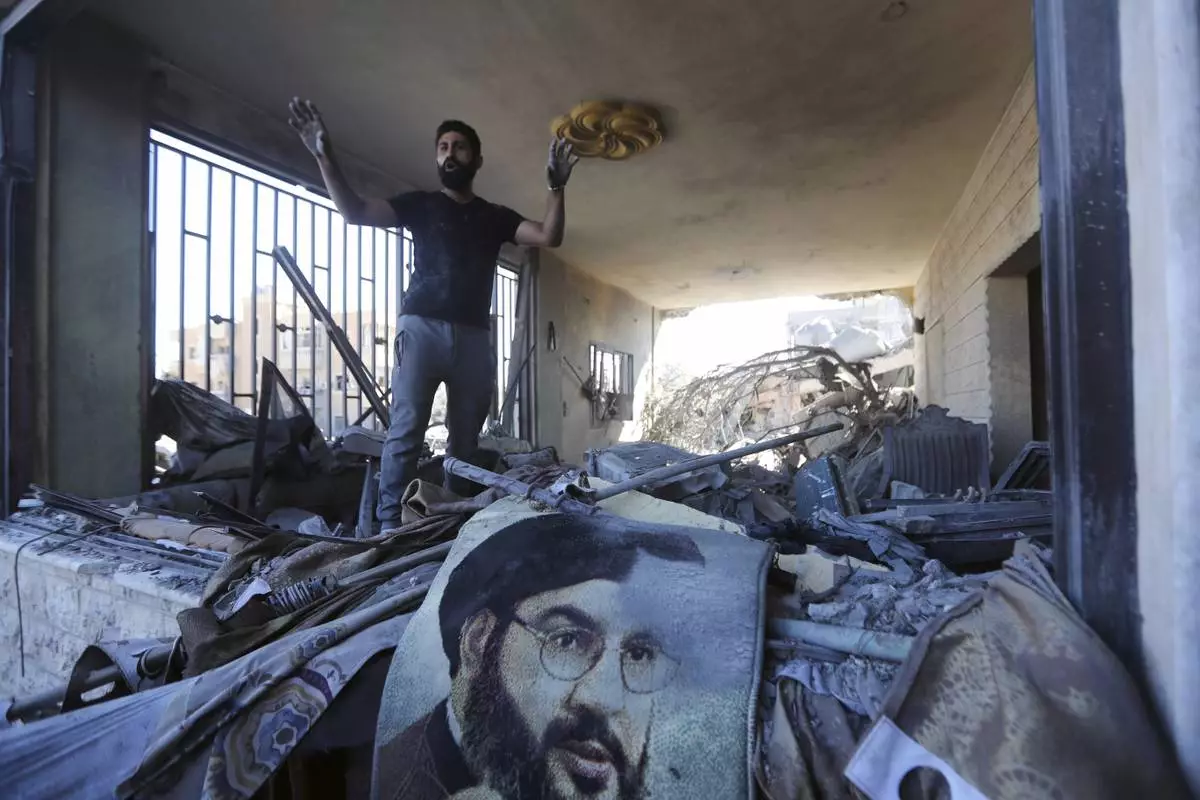
A man reacts in a damaged apartment at the site of an Israeli airstrike in Saksakieh, south Lebanon, Thursday, Sept. 26, 2024. (AP Photo/Mohammed Zaatari)
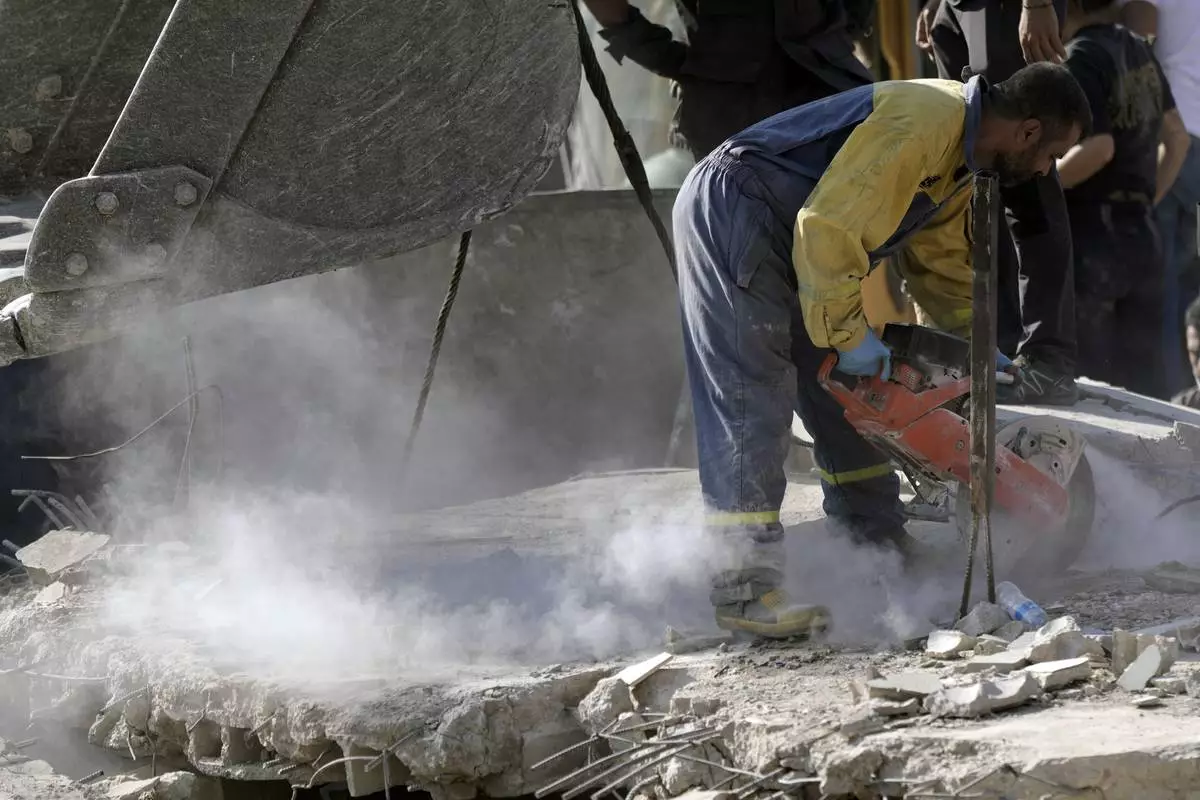
An emergency worker cuts concrete blocks as he searches for survivors at the scene of an Israeli airstrike in the town of Maisara, north of Beirut, Wednesday, Sept. 25, 2024. (AP Photo/Bilal Hussein)






























